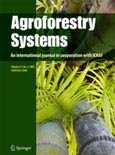This article examines Nepal's recently prepared Forestry Sector Strategy (FSS) (as of 2014) in terms of the use of scientific evidence and the quality of stakeholder participation. By reviewing the content and analyzing the context of its development during 2012-2014, we found that the transitional politics and overt influence of international development agencies dominated the process and content of the FSS. Although the FSS was developed through a significant stakeholder engagement, there was limited use of the available scientific evidence. The FSS was narrowly conceived as a deliverable of supporting aid programs, with limited demand for a politically meaningful policy processes. While civil society groups were consulted, they largely failed to present an independent voice due to their dependence on funding agencies. Our assessment calls for rethinking policy development in a way that facilitates assertive and independent participation by a range of actors and make better use of the available research.
DOI:
https://doi.org/10.1080/08941920.2015.1122851
Pontuação Altmetric:
Dimensões Contagem de citações:



















